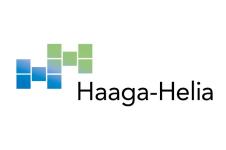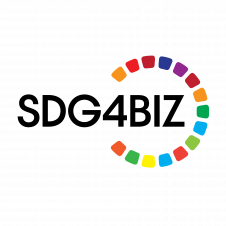SDG4BIZ Project
The Knowledge Alliance for Business Opportunities in SDGs (SDG4BIZ) emerges as a pioneering European and Turkish transnational project, strategically aligning higher Education Institutions (later HEIs) and businesses. This initiative created, tested, and disseminated a multidisciplinary curriculum and training material specifically tailored to recognize and actualize the business opportunities embedded within the SDGs. The collaboration involved cross-border teams of educators and experts jointly developing innovative pedagogical content within an online learning platform. This enhances students' creativity, employability, and career prospects and adds significant value for enterprises.
The SDG4BIZ project was carried out during the period from January 1, 2021, to December 31, 2023. Metropolia University of Applied Sciences coordinated the project. Below you can read a brief overview of the project and the results it produced. Additionally, you can explore the project’s outcomes and publications. The project was funded by Erasmus+ Programme of the EU.
The SDG4BIZ training contents that emerged from the co-creation process proved highly pertinent for HEI students, teachers, and company staff, effectively addressing the needs of both companies and HEIs for training on business opportunity recognition related to SDGs. The consortium achieved outreach to target groups through pre-pilot, pilot, and dissemination activities. Notably, the pre-pilot engaged 219 academic and business professionals, with subsequent activities resulting in 1126 self-registrations on the SDG4BIZ online learning platform, comprising HEI teachers, students, and company staff. In addition to enrolled learners from partner countries, learners from 41 countries were registered.
Importantly, the number of beneficiaries from the SDG4BIZ training package content exceeded the count of self-registered learners on the SDG4BIZ learning platform. This can be attributed to registered HEI teachers utilizing the SDG4BIZ learning content for their students, who represent the current and future workforce in companies. Further dissemination activities, encompassing the project website, social media, SDG4BIZ book & audiobook, international seminars, conference presentations, symposiums, newsletters, and publications, reached around 147000 targets. A total of 368 dissemination activities were completed (Local level: 81, Regional/national level: 159, European/International level: 125).
Feedback from registered learners of the SDG4BIZ course highlighted the value, accessibility, re-usability, scalability, informativeness, clarity, logical structure, ease of navigation, and overall helpfulness of the learning materials. Learners expressed positivity towards using the SDG4BIZ materials for training, staff development, and future implementation. The upward trend in the utilization of SDG4BIZ learning materials among target groups throughout 2023 indicates an increasing acknowledgment of the content provided in the SDG4BIZ learning package.
Based on this trend, it is estimated that by 2027, companies will create new businesses focusing on SDGs, thereby enhancing their competitiveness. The SDG4BIZ curriculum is anticipated to gain broader acceptance among HEIs and European companies, contributing to business growth. Sustainability is ensured through the continued availability of training materials on the Erasmus+ project platform, project website, and Open Educational Resources (OER) as well as their integration into the HEIs’ curricula. This collective effort propels the world closer to achieving the SDGs by 2030.
Problem and Needs
The Sustainable Development Goals (SDGs) set by the United Nations are likely not met by the target year 2030, if companies do not recognize and utilize the business opportunities inherent in them. 380 million jobs would be created and €10 trillion in business opportunities would be unlocked if SDGs were realized by 2030. At the moment, companies are not able to utilize this growth potential and higher educational institutions (HEIs) do not adequately support the competence building of future managers and policy makers for solving the world’s most urgent problems. Current training efforts of SDGs focus on awareness building only, not business opportunity recognition and economic development related to SDGs. Thus, an innovative and scalable curriculum and training material is needed.
Solution and Outcome
Knowledge Alliance for Business Opportunities in SDGs (SDG4BIZ) creates, tests and disseminates a curriculum and training material on recognizing and realizing the business opportunities in SDGs. An innovative pedagogical solution is created targeting both European HEIs and companies and delivered via project partners’ viable learning platform. The training addresses 60 most relevant business opportunities inherent in SDGs with 5 Modules: shared value business opportunity recognition and specific opportunities in food and agriculture, cities, energy and materials, and health and wellbeing.
Impact
The level of curriculum adoption and actual business opportunity recognition and realization are readily available after the project via learning platform capable of advanced data analytics. During this project (until 2023), 80% of teaching staff of Partner HEI’s (4) (1500 teachers) have been trained and impact has been measured. 30% (600) of teachers have integrated SDG business potential in their teaching. 115 companies have trained their staff (80 000) and 60% (48 000) of staff have taken the training knowhow for process and product development.
Sustainability and Scalability
By 2027, as a result of realizing these opportunities, the companies create new business focusing on SDGs and become more competitive. The curriculum will be used by 200-500 of HEIs and 2000-5000 of European companies, enhancing business growth. Sustainability is ensured by continued availability of the training material, integration into curricula and promotion of public-private cooperation with SMEs and academic publications. The world will be closer to reaching the SDGs by 2030.
Metropolia University of Applied Sciences, Finland (Project Coordinator)

Metropolia is Finland’s largest University of Applied Sciences with 17,433 students and 1,054 staff members. It is one of the 23 universities of applied sciences in Finland administered by Ministry of Education and Culture. Metropolia educates professionals in the fields of Business, Culture, Engineering, and Health Care and Social Services. In 2023, 2 627 students graduated with a Bachelor’s degree and 538 with a Master’s degree. 61 programmes are taught in Finnish and 19 in English. In addition, Metropolia provides open University of Applied Sciences studies, summer courses and courses preparing immigrants for UAS.
Haaga-Helia University of Applied Sciences, Finland
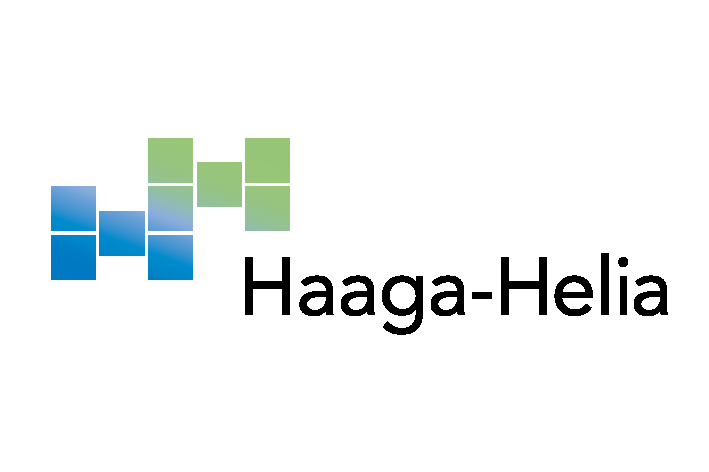 Haaga-Helia is the second biggest university of applied sciences in Finland. Through education, research and development, Haaga-Helia prepares professionals in business and services offering students a versatile choice of studies, opportunities for specialization, high-quality education in Finnish and English and wide business networks. The 10 000 students and 600 employees at Haaga-Helia base their activities on highly advanced national and international expertise.
Haaga-Helia is the second biggest university of applied sciences in Finland. Through education, research and development, Haaga-Helia prepares professionals in business and services offering students a versatile choice of studies, opportunities for specialization, high-quality education in Finnish and English and wide business networks. The 10 000 students and 600 employees at Haaga-Helia base their activities on highly advanced national and international expertise.
brainplus, Austria
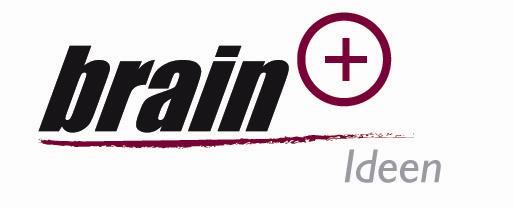 The company brainplus has currently two fields of competences: the development and the finding of new ideas in the innovation process, and consultancy on the field of regional, national, and international funding schemes.
The company brainplus has currently two fields of competences: the development and the finding of new ideas in the innovation process, and consultancy on the field of regional, national, and international funding schemes.
Slovak University of Technology in Bratislava, Slovakia
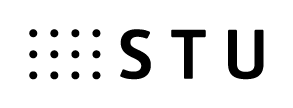 Slovak University of Technology in Bratislava (further as “STU”) is a modern educational and scientific institution. Since its foundation in 1937 more than 145.000 students have graduated. In an average, 17.000 students’ study at the STU every year. At present, the STU consists of seven faculties based in Bratislava and Trnava. All the faculties provide a study in accredited study programmes within the complex system of a bachelor, master and PhD. study. Faculties realise credit system compatible with the ECTS enabling mutual mobility of students within European Union.
Slovak University of Technology in Bratislava (further as “STU”) is a modern educational and scientific institution. Since its foundation in 1937 more than 145.000 students have graduated. In an average, 17.000 students’ study at the STU every year. At present, the STU consists of seven faculties based in Bratislava and Trnava. All the faculties provide a study in accredited study programmes within the complex system of a bachelor, master and PhD. study. Faculties realise credit system compatible with the ECTS enabling mutual mobility of students within European Union.
itslearning, Finland
![]() itslearning is a cloud-based Learning Management System (LMS) that connects people with passions, ideas, and most importantly, each other. The itslearning Learning Management System (LMS) solution allows universities to truly personalise learning by putting curriculum resources, instructional strategies, objective-based lesson plans and assessments, all in one easy-to-access central location. The platform provides countless ways for lecturers to create engaging lessons and resources, makes teacher collaboration and sharing of materials easy, and automates routine tasks so lecturers have more time to focus on their activities.
itslearning is a cloud-based Learning Management System (LMS) that connects people with passions, ideas, and most importantly, each other. The itslearning Learning Management System (LMS) solution allows universities to truly personalise learning by putting curriculum resources, instructional strategies, objective-based lesson plans and assessments, all in one easy-to-access central location. The platform provides countless ways for lecturers to create engaging lessons and resources, makes teacher collaboration and sharing of materials easy, and automates routine tasks so lecturers have more time to focus on their activities.
FENICE Green Energy Park, Italy
![]() FENICE Green Energy Park is home to a Training Agency, Certified by Regione Veneto, for Continuing Education, born by the joint will of civil society and Zip Consortium with the aim to value one of the last green areas with in the Padua territory. The Park itself is an embryonic example of a smart city in a very peculiar peri-urban environment, between the center of the town and the 1.400 firms in the Industrial District: Terranegra island. Managing the park from 2005, Fondazione Fenice Onlus main endeavour is to bring together landscape environmental tutelage and research for new technologies that will act on environmental emergencies and on future development scenarios.
FENICE Green Energy Park is home to a Training Agency, Certified by Regione Veneto, for Continuing Education, born by the joint will of civil society and Zip Consortium with the aim to value one of the last green areas with in the Padua territory. The Park itself is an embryonic example of a smart city in a very peculiar peri-urban environment, between the center of the town and the 1.400 firms in the Industrial District: Terranegra island. Managing the park from 2005, Fondazione Fenice Onlus main endeavour is to bring together landscape environmental tutelage and research for new technologies that will act on environmental emergencies and on future development scenarios.
Tknika, Spain
 Tknika is an agency for applied research and innovation and for the transfer of results of the RDI activity to all centres providing professional training in the Basque Country. Tknika, whose nature is to provide research and innovation services and support to the VET centres and other organizations and companies, is organically attached to the Vice-Ministry of Vocational Education and Training, Department of Education, Linguistic Policy and Culture of the Basque Government.
Tknika is an agency for applied research and innovation and for the transfer of results of the RDI activity to all centres providing professional training in the Basque Country. Tknika, whose nature is to provide research and innovation services and support to the VET centres and other organizations and companies, is organically attached to the Vice-Ministry of Vocational Education and Training, Department of Education, Linguistic Policy and Culture of the Basque Government.
Yasar University, Turkey
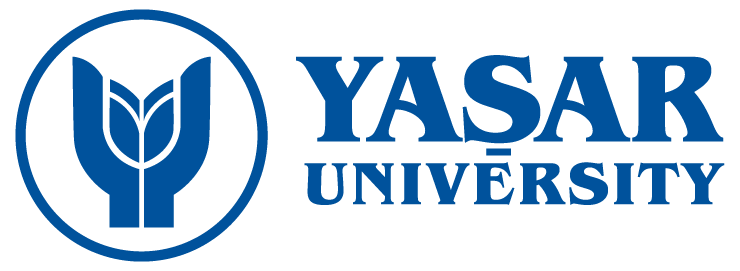 Yasar University was established in Izmir, Turkey in 2001 with the mission of creating sustainable value through superior education and research and contributing to society by cultivating those innovative individuals who will shape the future. Yasar University has a clear vision for becoming a world-class university dedicated to designing and redefining the future.
Yasar University was established in Izmir, Turkey in 2001 with the mission of creating sustainable value through superior education and research and contributing to society by cultivating those innovative individuals who will shape the future. Yasar University has a clear vision for becoming a world-class university dedicated to designing and redefining the future.
Project Outputs and Results
Early in the project, the Current State Analysis and Best Practices Analysis Report was completed. The main aim was to identify the awareness level of sustainability and sustainable development goals in the context of business opportunity areas and find best practices. The survey was performed at beneficiary organizations in six countries (Finland, Slovakia, Italy, Austria, Spain, and Turkey). A research questionnaire was completed by 847 respondents, confirming that the project’s aim to create and disseminate curriculum and training material on recognizing and realizing the business opportunities in SDG is indeed needed in both public and private sectors. Moreover, it confirmed the need for cross-cutting educational materials in various sectors across Europe and Turkey. Concurrently, an exploration of success stories in seizing business opportunities aligned with Sustainable Development Goals (SDGs) was undertaken to glean best practices from various countries.
Current State Analysis and Best Practices Analysis Report is available on Erasmus+ website.
The SDG4BIZ curriculum and training package description were crafted at first, followed by the development of training package content encompassing five modules: 1) SDGs in Business opportunity recognition, and specific opportunities in 2) food and agriculture, 3) cities, 4) energy and materials, and 5) health and wellbeing. Subsequently, the online learning platform was enriched with content and translated into consortium partners' languages (FI, ES, TR, IT, SK, and DE). Throughout the phases of project discovery, design, development, and testing, continuous communication between teachers, experts, and stakeholders facilitated the refinement of the learning platform in response to learners’ feedback.
Training Package Content SDG4BIZ Modules 2-5 (aoe.fi)
The SDG4BIZ Curriculum and training package description, as well as all training packages (EN, FI, ES, TR, IT, SK and DE), can be explored and downloaded on the Erasmus+ website (please see the section Practical & reusable resources for the practitioners).
Learn more about SDG4BIZ modules!
The Final Report for WP 5 is the document detailing the conduct of the work package from beginning to its conclusion. It explains the oversight of the work package, the planning and the conduct of the piloting, and the collection and analysis of the data. It concludes with a preliminary evaluation of the work package as a whole, and consideration of the learning outcomes achieved and how these can be exploited as the learning materials are disseminated, implemented and adapted more widely.
Featured in the report are the responses to user surveys as compiled by the Piloting team. These are grouped according to two stakeholder groups: academics and company representatives. The piloting was conducted in five separate stages, following a peer review process among the SDG4BIZ project team. Before testing the learning materials prepared by the project team, members of the team crosschecked and reviewed others’ learning materials in order to correct any errors and otherwise suggest improvements.
The academic pilot was split into four different steps. Task 5.1, the pre-pilot, involved members of the project team selecting a small sample of academics in order that they would test the learning materials. On the basis of their responses, the project team made the final alterations to the learning materials where necessary before starting the full pilot process.
Task 5.2, as specified by the project plan, required the formation of teacher cohorts (numbering 3-5) who would employ some or all of the learning materials in the development of a pedagogical model to be tested (Task 5.3) and then evaluated (Task 5.4) by the same cohort. The basis of the evaluation was the set of intended learning outcomes specified by each cohort in Task 5.2, compared with the results obtained during Task 5.3 and subject to critical reflection and evaluation in Task 5.4. In the process, a model of continuous improvement would be established whereby future implementations and developments of the learning materials would be subject to the same process of design,
implementation and review.
Task 5.5 was conducted by the non-academic members of the project team, and involved securing the participation of representatives of 110 companies from across Europe (mainly Austria, Italy and Spain), as specified by the project plan. This was done following the completion of the pre-pilot, Task 5.1. Company representatives were asked to evaluate the learning materials with respect to their relevance to business activity in general, and to their employers more specifically.
Overall, the results achieved in both pilots were positive, with a majority of survey respondents recording their approval of and willingness to continue working with the learning materials in some modified form tailored to suit their organisations’ purposes.
SDG4BIZ Project Newsletters
The SDG4BIZ consortium published six project newsletters that summarized the SDG4BIZ project activities, highlights, and milestones achieved.
SDG4BIZ in short
The Knowledge Alliance for Business Opportunities in SDGs project entitled with SDG4BIZ designs and pilots a multidisciplinary, cross-border curriculum and training material for business opportunity recognition in Sustainable Development Goals of the United Nations. It enhances the awareness of business growth potential in SDGs and serves the innovation capabilities of EU companies and the competence needs of European HEIs. The SDG4BIZ will represent the newest pedagogical knowledge. Therefore SDG4BIZ will help to reach Millennials effectively by combining micro-learning and mobile learning as pedagogical methods.
Why SDG4BIZ?
The Sustainable Development Goals (SDGs) set by the United Nations are likely not met by the target year 2030 if companies do not recognize and utilize the business opportunities inherent in them. Three hundred eighty million jobs would be created, and €10 trillion in business opportunities would be unlocked if SDGs were realized by 2030. At the moment, companies cannot utilize this growth potential, and higher educational institutions (HEIs) do not adequately support the competence building of future managers and policymakers for solving the world’s most urgent problems. SDGs’ current training efforts focus on awareness building only, not business opportunity recognition and economic development related to SDGs. Thus, an innovative and scalable curriculum and training material are needed.
The Solution of SDG4BIZ
Project The SDG4BIZ consortium will create, test, and disseminate curricula and training materials on recognizing and realizing the business opportunities in SDGs. An innovative pedagogical solution is created targeting both European HEIs and companies and delivered via project partners’ viable learning platform. The training addresses 60 most relevant business opportunities inherent in SDGs with 5 Modules:
- shared value business opportunity recognition & specific opportunities in
- food and agriculture,
- cities,
- energy and materials, and
- health and wellbeing.
Potential Impact of SDG4BIZ
The level of curriculum adoption and actual business opportunity recognition and realization are readily available after the project via a learning platform capable of advanced data analytics. During this project (until 2023), 80% of the teaching staff of Partner HEI’s 1500 teachers will be trained, and its impact will be measured. 30% (600) of teachers have integrated SDG business potential in their teaching. One hundred fifteen companies have trained their staff (80 000) and 60% (48 000) of staff have taken the training know-how for process and product development.
Sustainability and Scalability
By 2027, the companies create new businesses focusing on SDGs and become more competitive due to realizing these opportunities. The curriculum will be used by 200-500 of HEIs and 2000-5000 European companies, enhancing business growth. Sustainability is ensured by the continued availability of the training material, integration into curricula, and promotion of public-private cooperation with SMEs and academic publications. The world will be closer to reaching the SDGs by 2030.
Coordination and Meetings
With the participation of all partners, the kick-off meeting was completed. Partners were already ready, and the project coordinator created an online project management interface to lead and follow their tasks continuously. Besides, a partner’s supporting activities to a workpackage leader ensured with the SDG4BIZ digital follow-up interface.
The restrictions and unprecedented situations caused by the coronavirus pandemic have undoubtedly affected activities worldwide. The whole project team committed to minimizing the effects of the pandemic on the SDG4BIZ project, albeit the project is inevitably affected by the outcomes of the pandemic.
The project consortium needed to postpone in-person transnational meetings to future dates when the pandemic will be under control to minimize the adverse effects. Until then, online meetings continue with the high engagement of each partner. Thanks to the digital platforms, partners’ proactive intention, and their rapid adaptation to the project plan and online events, because with their commitment and engagement to each of the project activities, the project’s activities are in progress as planned to achieve the main outputs.
What is next & How to follow?
- SDG4BIZ Project website
- @sdg4biz Instagram
- SDG4BIZ Facebook
SDG4BIZ Consortium


The European Commission's support for the production of this publication does not constitute an endorsement of the contents, which reflect the views only of the authors, and the Commission cannot be held responsible for any use which may be made of the information contained therein.
SDG4BIZ Project Website is Online!
What is inside the Website?
- Detailed project description.
- Contact information of the partners and the institutions.
- News feed about the project and the Sustainable Development Goals of the United Nations.
- Project outputs.
- Newsletters.
What happened between Newsletter-1 and Newsletter-2?
- May 26, 2021: Project Committee and Quality Committee
- June 16, 2021: WP Meeting
- June 30, 2021: Project Committee and Quality Committee
- August 18, 2021: Project Committee and Quality Committee
- September 13, 2021: WP Meeting
“Current State Analysis and Best Practices Report” is published
What is inside?
This document reports on the outcomes of a current state analysis in Finland, Slovakia, Austria, Turkey, Spain, and Italy, and examples of best practices in the implementation of sustainable development goals (SDGs).
Key target groups
- Staff and students of European higher education institutions (HEIs).
- Small, mid-sized enterprises
Key findings of current state analysis of SDG4BIZ project:
- Regional differences—identified gaps in knowledge (sustainable development, SDGs)
- Interest to learn more about sustainability content (students, academics, companies)
- Interest in sustainability-related curriculum content expressed by students, external and large institutions and academics.
The project “Knowledge Alliance for Business Opportunity Recognition in SDGs” provides insights into research questions about the current state of sustainability and SDGs awareness by conducting a survey. The study aims to determine the level of awareness and interest in sustainability and the Sustainable Development Goals in three stakeholder groups covering the academic and business environments.
Workflow of current state analysis
- Survey
- 1st version of the questionnaire - brainstorming via Flinga
- 2nd and 3rd improved versions - discussion/comments
- English final version in Webropol
- Pre-testing - Pilot - recommendations
- Translation in national languages
- Survey realization by partners
- Data collection and analysis
Totally
- 851 questionnaires
- 488 students
- 121 academics
- 238 companies
Key findings from current state analysis
The key findings from the SDG4BIZ survey show that sustainability and SDGs-related content are generating interest within all identified stakeholder groups (students, academics, and companies). Among students, there is high demand for learning sustainability in practice, and academics are interested in learning how SDGs can help guide and shape curriculum and project development. However, regional differences in knowledge about SDGs are evident. Nevertheless, international collaboration can help overcome this gap by implementing international projects, including universities, companies, and building the sustainable knowledge triangle (university- company- research).
Social Media Presence
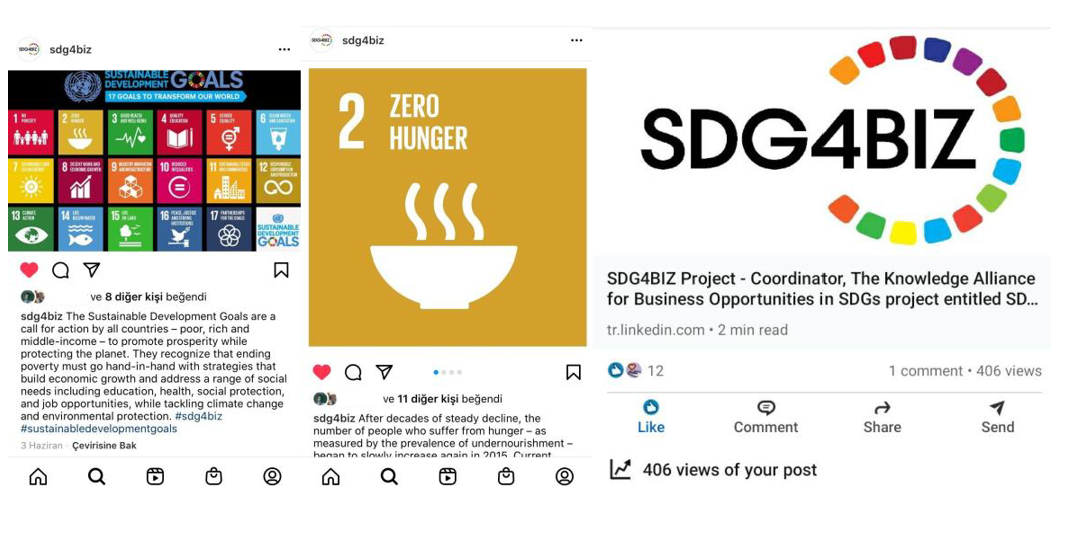
What is next & How to follow?
SDG4BIZ Consortium


The European Commission's support for the production of this publication does not constitute an endorsement of the contents, which reflect the views only of the authors, and the Commission cannot be held responsible for any use which may be made of the information contained therein.
Welcome to SDG4BIZ project newsletter!
Dear Sustainable Development Community,
In the third issue of our project newsletter, we are glad to share with you the project activities organized by the partnership in Fall 2021. This newsletter also focuses on the content co-creation for the SDG4BIZ course.
Erasmus+ Knowledge Alliance for Business Opportunity Recognition in SDGs project designs and pilots a multidisciplinary, cross-border curriculum and training material for business opportunity recognition in Sustainable Development Goals of the United Nations. Project consortium brings together 8 higher education institutions and businesses from Austria, Finland, Italy, Slovakia, Spain, and Turkey.
Enjoy reading,
SDG4BIZ Consortium
Current Developments in the Project
Activities gain momentum in 2021
The SDG4BIZ Consortium focused on the current state and best practices analysis process in the first half of 2021. Following analysis on the recent state in academic and business environments of the awareness of sustainability practices, the consortium started to work on the content co-creation for the SDG4BIZ curricula.
Research, analysis, and collaboration heavy content of the work packages meant that the partnership needed to meet frequently for management and content-related discussions.
The consortium also met regularly for project management and quality assurance purposes in Fall 2021.
Project Committee & Quality Committee Meetings
- 29 September 2021
- 27 October 2021
- 24 November 2021
- 22 December 2021
What's in store for 2022?
From analysis to co-creation
- In 2022, the consortium will be working on the content co-creation process in the first half of the year. Each module will be ready by June 2022.
- In the second half of the year, the piloting of the SDG4BIZ course will commence on ItsLearning platform.
- The consortium will continue with dissemination, evaluation, and quality assurance tasks as well throughout the year.
SDG4BIZ Curricula Co-Creation
Business opportunity recognition to solve global problems
Curriculum and training material to be created by the SDG4BIZ project focus on recognizing and realizing the business opportunities in Sustainable Development Goals.
Entrepreneurship and innovation in the area of SDGs are at the core of the SDG4BIZ project. The online learning platform will offer the best support in terms of structure, pedagogical approach, and impact measurement for the training. The course will address the 60 most relevant business opportunities inherent in SDGs. The main learning
module will consist of content on shared value business opportunity recognition, while four other modules address specific opportunities in a) food and agriculture, b) cities, c) energy and materials, and d) health and wellbeing. The work on the SDG4BIZ course content co-creation process has required the organization of module workshops, module leaders' meetings, and big group gatherings.
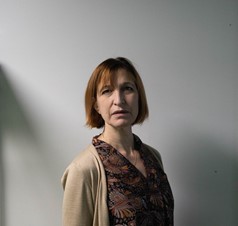
The co-creation process followed this structure. Annariikka Rosendahl, Project Manager and the leader of co-creation work package reflects on the process:
Our study course will offer a set of tested pedagogical tools that support the businesses in transition to more sustainable and just world.
Business Opportunity Recognition module team developed a common framework for all modules to adopt. This framework was the result of an analysis on learner personas: educator, entrepreneur, business manager or consultant and, an employee of a company or organization. The study analyzed reasons for engaging or not engaging considering interests, motivations, skills, dreams, and expectations of the target group. Learning objectives, activities, and contents of each module can be structured according to this common framework with 5 baskets: SDGs, Business Models, Motivation, Context, and Resources and Networks.
How to contact SDG4BIZ Consortium
- SDG4BIZ Project website
- @sdg4biz Instagram
- SDG4BIZ Facebook
- SDG4BIZ Linkedin
SDG4BIZ Consortium


The European Commission's support for the production of this publication does not constitute an endorsement of the contents, which reflect the views only of the authors, and the Commission cannot be held responsible for any use which may be made of the information contained therein.
Welcome to SDG4BIZ project newsletter!
Dear Sustainable Development Community
In the fourth issue of our project newsletter, we are glad to share with you the project activities organized by the partnership in 2022. This newsletter also focuses on piloting the SDG4BIZ course.
Erasmus+ Knowledge Alliance for Business Opportunity Recognition in SDGs project designs and pilots a multidisciplinary, cross-border curriculum and training material for business opportunity recognition in the Sustainable Development Goals of the United Nations. The project consortium brings together higher education institutions and businesses from Austria, Finland, Italy, Slovakia, Spain, and Turkey.
Enjoy reading,
SDG4BIZ Consortium
A YEAR IN REVIEW: MILESTONES AND ACHIEVEMENTS
SDG4BIZ Erasmus+ KA2: Knowledge Alliance
Project Annual Meeting (23-25 May 2022 Helsinki, Finland)
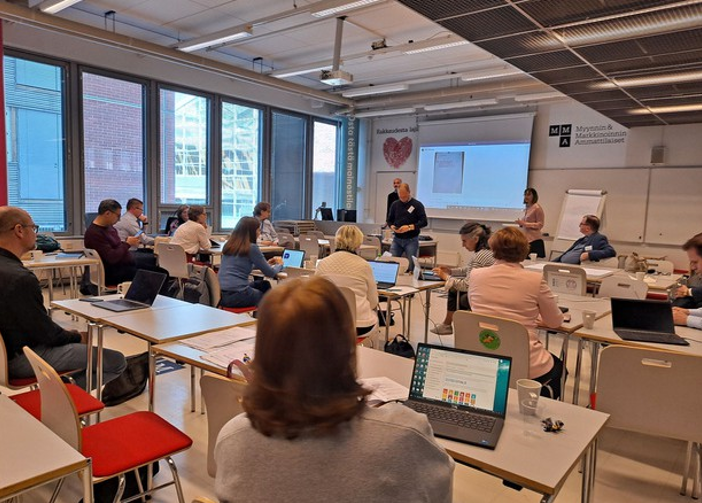 The consortium of Erasmus+ KA2: Knowledge Alliance project “Knowledge Alliance for Business Opportunity Recognition in SDGs (SDG4BIZ) gathered in Helsinki, Finland for the annual project meeting, organized by the project coordinator, Metropolia University of Applied Sciences between 23-25 May 2022 with the participation of 25 researchers and project team members from higher education institutions, companies, and research and innovation agencies in the partnership.
The consortium of Erasmus+ KA2: Knowledge Alliance project “Knowledge Alliance for Business Opportunity Recognition in SDGs (SDG4BIZ) gathered in Helsinki, Finland for the annual project meeting, organized by the project coordinator, Metropolia University of Applied Sciences between 23-25 May 2022 with the participation of 25 researchers and project team members from higher education institutions, companies, and research and innovation agencies in the partnership.
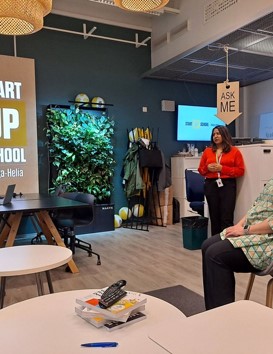 On the first day of the meeting, the consortium organized a workshop on the main output of the project- “SDG4BIZ curriculum” to analyze and evaluate the content and the flow of each module. The curriculum has been developed by the partnership in a collaborative method over nine months and includes 5 modules.
On the first day of the meeting, the consortium organized a workshop on the main output of the project- “SDG4BIZ curriculum” to analyze and evaluate the content and the flow of each module. The curriculum has been developed by the partnership in a collaborative method over nine months and includes 5 modules.
The result will be tested and piloted over It’s learning, an online learning platform. The curriculum focuses on sustainable development goals (SDGs) in business opportunity recognition, shared value business opportunity recognition, entrepreneurship & innovation in the field of food and agriculture, cities and communities, energy and materials, health and wellbeing.
On the second day of the program, the consortium organized a symposium entitled 'Business Opportunity Recognition in Sustainable Development Goals' in which module leaders, researchers, and managers from partner organizations discussed business opportunity recognition and sustainability themes with a specific focus on the SDG4BIZ curriculum modules.
Interim review from the European Commission
In 2022, the SDG4BIZ project submitted its interim report for expert assessment from the European Commission.
According to the review results, the project has produced a fruitful, multi-dimensional collaboration that includes a strong and productive Alliance, facilitating exchange, flow, and co- creation of knowledge between the academic and business partners in the field.
The consortium has also created an innovative pedagogical solution through the newly developed curriculum. The assessment concludes that the project demonstrates European added value, by promoting an entrepreneurial and sustainability mindset and building awareness across Europe.
The SDG4BIZ project team will strive to fulfill the transferability potential of the project's main results in the final year of project implementation.
Curriculum co-creation completed
The SDG curriculum and training package description started in 2021 and was completed in June 2022.
The work for the curriculum co-creation was led by Haaga-Helia University of Applied Sciences (Finland) and all consortium members contributed and/or led a learning module development. The module contents were uploaded to the LMS: Itslearning for pre-piloting and piloting studies.
The main outcomes were:
- Identification of learners (Business leaders, Educators, Employees of the companies, future professionals including students)
- Analysis of the learning personas: Business leaders, Educators, Employees of the companies
- Digitalization of learning and micro-learning in the form of pedagogical solutions
- Development of five learning modules corresponding to five ECTS each.
- The first module ‘SDGs in business opportunity recognition’ contains the shared value of business opportunity recognition, entrepreneurship & innovation. It offers the overall knowledge base that the other modules (Modules 2-5) are founded upon.
- In this curriculum, sustainable business opportunity recognition is understood as an iterative process of sensing and acting while taking into consideration the impact on society, environment, and economy, and that creates room for shared value business opportunity recognition, entrepreneurship and innovation, and business opportunity recognition in SDGs. The SDG4BIZ curriculum heuristic triangle presents how the business opportunity emerges in the nonlinear process.
- Modules 2-5 are more sector-orientated, and the content is more practical. All modules have a similar structure including Orientation, United Nation’s SDGs, Context, Motivation, Recourses and Networks, and Business Modelling.
WHAT'S IN STORE FOR 2023?
Piloting of SDG4BIZ Curriculum to kick-off
Following the completion of the curriculum content co-creation process, the consortium carried out a peer review study for quality assurance and detection of issues before the launch of the pre-piloting of each module in the SDG4BIZ curriculum. In the last two months of 2022, each partner institution engaged 10 academic participants and 10 business/professional representatives in the pre-piloting phase. Feedback from the pre-piloting will be reflected in the training package content and learning platform to make improvements before starting the pilot.
The full piloting of the modules in the SDG4BIZ curriculum will be done in the Spring 2023 academic semester. Each HEI in the consortium will form teacher/academic cohorts for the evaluation of the used curriculum as well as the learning objectives, methodologies, and activities. This will result in incorporating part of all of the relevant module material into a course that will be offered during the spring semester of 2023 at a partner university. The cohort will include those responsible for delivery and assessment in addition to suitably qualified academics with expertise in the specific area related to the module content.
The cohorts will focus on integrating curriculum materials into the course syllabus for the purpose of producing a validated and verified pedagogical design.
International Seminars & The SDGs and Entrepreneurship Book
2023 will focus on increased dissemination activities of the SDG4BIZ project through the organization of two international seminars, and the launch of the book entitled "the SDGs and Entrepreneurship" by the consortium members.
The first international seminar will be organized in Istanbul, Turkey between 16-18 March 2023 as a part of the 3rd Current Issues in Business and Economic Studies: CIBES CONFERENCE 2023.
As a part of the dissemination and sustainability measures of the project, a book on SDGs and Entrepreneurship will be published at the end of the project. The SDG4BIZ book aims to assemble high-quality papers that explain, deepen, and enhance the understanding of the potential and impact of the Sustainable Development Goals of the United Nations (SDGs) on Business Opportunity Recognition for entrepreneurship and innovation management, as well as a sustainable business and sustainable entrepreneurship.
Submissions can be sent to: book.sdg4biz [at] gmail.com (book[dot]sdg4biz[at]gmail[dot]com)
SDG4BIZ Project
- SDG4BIZ Project website
- @sdg4biz Instagram
- SDG4BIZ Facebook
- SDG4BIZ Linkedin
SDG4BIZ Consortium


The European Commission's support for the production of this publication does not constitute an endorsement of the contents, which reflect the views only of the authors, and the Commission cannot be held responsible for any use which may be made of the information contained therein.
Welcome to SDG4BIZ project newsletter!
Dear Sustainable Development Community
Welcome to the Fifth Issue of Our Project Newsletter! We are thrilled to share the latest updates on the Erasmus+ Knowledge Alliance for Business Opportunity Recognition in SDGs project. The consortium, consisting of higher education institutions and businesses from Austria, Finland, Italy, Slovakia, Spain, and Turkey, is designing and piloting a cross-border curriculum and training material for business opportunity recognition in the United Nations' Sustainable Development Goals.
This newsletter focuses on the project activities organized by the partnership in the first half of 2023, as well as the first SDG4BIZ international seminar. We hope you enjoy reading about our progress.
Best regards,
SDG4BIZ Consortium
2023 SO FAR: MILESTONES AND ACHIEVEMENTS
Fondazione Fenice Holds Global Conference on Business Opportunity Recognition for SDGs (20 June 2023)
On June 20, 2023, the SDG4BIZ Erasmus+ Project presented The International Seminar on Business Opportunity Recognition for SDGs in Italy, hosted by Fondazione Fenice. The conference aimed to integrate sustainability efforts with the SDGs to create social, economic, and environmental value. Attendees were able to learn about SDG4BIZ Curriculum co-creation from leading academics. The seminar also featured keynote speakers who presented innovative business models and successful case studies in the field.
The seminar not only provided a platform for knowledge sharing and networking but also emphasized the need for businesses to align their strategies with the SDGs and integrate sustainability into their core operations.
The event brought together stakeholders from various fields such as academia, business, and government. They were able to participate in interactive workshops and engage in meaningful discussions about the importance of incorporating the SDGs in business practices. The seminar included panel discussions with experts from business and academia sharing insights and experiences on how to leverage the SDGs to create sustainable business opportunities and how to use SDG4BIZ curriculum in the process.
Introducing FENICE Green Energy Park: A Hub for Continuing Education and Environmental Research
FENICE Green Energy Park is a certified training agengy, backed by Regione Veneto, that offers a range of continuing education opportunities. It results from the collaborative efforts of civil society and Zip Consortium, with a mission to preserve one of Padua's last remaining green spaces. The park is an embryonic example of a smart city in a very peculiar pre-urban environment, between the center of the town and the 1,400 firms in the Industrial District: Terranegra Island. Managing the park since 2005, Fondazione Fenice Onlus's main endeavor is to bring together landscape environmental tutelage and research for new technologies that will act on environmental emergencies and on future development scenarios.
A YEAR IN REVIEW: MILESTONES AND ACHIEVEMENTS
Piloting the SDG4BIZ Modules
The SDG4BIZ Consortium has been diligently working since the start of this year to pre-pilot and fully pilot their recently developed modules. To ensure optimal results, the SDG curriculum and training package underwent peer review by each partner organization. As part of the prepiloting phase, ten academic and ten business stakeholders from each partner organization were invited to participate and provide feedback for improvement. In addition, the modules and training package were translated into local languages to prepare for the full launch of the SDG4BIZ module pilot.
To properly pilot the learning materials in the spring of 2023, the first step was to form teacher/academic cohorts to evaluate the used curriculum. The cohorts were responsible for reviewing learning objectives, methodologies, and activities. The next step was to incorporate the relevant module material into a course that will run during the spring semester of 2023 at one of the project partner universities. The cohort consisted of qualified academics with subject matter expertise, as well as those responsible for delivery and assessment.
Similar to academic piloting, company piloting involved representatives of SMEs and businesses in the areas covered by the modules to evaluate the learning materials designed to encourage and enable identification of business opportunities arising from SDGs.
SDG4BIZ 2ND INTERNATIONAL SEMINAR
You are invited to join us!
The SDG4BIZ Consortium is excited to announce the second international seminar of the Erasmus+ Knowledge Alliance for Business Opportunity Recognition in SDGs in Finland. This event will take place on 15th November 2023, from 12:30 to 15:30, and will be held in-person at the Metropolia UAS, Myyrmäki Campus, Finland, as well as online.
During the seminar, we will cover a range of topics that explore the intersection of sustainability and business, including the integration of sustainability into the HEI curriculum, corporate reflections on the SDG4BIZ Project course and its piloting phase, building a sustainable science-based business, and the SDG4BIZ project book launch.
This seminar offers a unique opportunity to students, professionals, and researchers to learn more about these critical subjects. Make sure to register for the seminar at https://elomake.metropolia.fi/lomakkeet/39402/lomake. html by 7th November 2023. Don't miss out on this exciting event!
The SDGs and Entrepreneurship Book
The SDGs and Entrepreneurship is a comprehensive book featuring a collection of chapters authored by researchers across various domains, tackling the intersection SDGs and entrepreneurship. The SDG4BIZ book compiles papers that explore the impact of the United Nations' Sustainable Development Goals on business opportunity recognition, entrepreneurship, and innovation management, as well as sustainable entrepreneurship and business practices.
The book is edited by two HEI partner organizations and one business partner. Topics covered include cultural sensitivity in SDG education, peatland management, the impact of COVID-19 on consumer behavior, sharing economy, sustainable development strategies, responsible consumption, smart cities, circular entrepreneurship, stakeholder awareness, and more.
SDG4BIZ Project
- SDG4BIZ Project website
- @sdg4biz Instagram
- SDG4BIZ Facebook
- SDG4BIZ Linkedin
SDG4BIZ Consortium


The European Commission's support for the production of this publication does not constitute an endorsement of the contents, which reflect the views only of the authors, and the Commission cannot be held responsible for any use which may be made of the information contained therein.
Welcome to SDG4BIZ project newsletter!
Dear Sustainable Development Community
Welcome to the Sixth and the Last Issue of Our Project Newsletter! We are thrilled to share the latest updates on the Erasmus+ Knowledge Alliance for Business Opportunity Recognition in the SDGs project. The consortium, consisting of higher education institutions and businesses from Austria, Finland, Italy, Slovakia, Spain, and Turkey, is designing and piloting a cross-border curriculum and training material for business opportunity recognition in the United Nations' Sustainable Development Goals.
This newsletter focuses on the final project seminar organized in Finland on 15 November 2023, the SDG4BIZ Book, and sustainability beyond the project. We hope you enjoy reading about our progress.
Best regards, SDG4BIZ Consortium
SECOND INTERNATIONAL SEMINAR: AN EVALUATION OF PROJECT RESULTS
Metropolia University of Applied Sciences Holds the Second Seminar on Business Opportunity Recognition for SDGs (15 November 2023)
On November 15, 2023, the SDG4BIZ Erasmus+ Project presented The Second International Seminar on Business Opportunity Recognition for SDGs in Finland, hosted by the Project Coordinator, Metropolia University of Applied Sciences. The conference aimed to integrate sustainability efforts with the SDGs to create social, economic, and environmental value. Attendees delved into the crucial intersection of sustainability and education. Business representatives shared corporate reflections on the SDG4BIZ course's impact and value addition, as well as their best practices in terms of sustainable business. The SDG4BIZ piloting and book process were shared to inform and disseminate the main outputs of the project.
The seminar served as a platform for sharing knowledge and networking, while also highlighting the importance of aligning business strategies with the SDGs and integrating sustainability into core operations. The event brought together stakeholders from different fields, including academia, business, and government. Interactive workshops and meaningful discussions were held to emphasize the significance of incorporating SDGs in business practices. The seminar also featured panel discussions with experts from business and academia, who shared their insights and experiences on leveraging the SDGs to create sustainable business opportunities and how to use the SDG4BIZ curriculum in the process.
Introducing Metropolia University of Applied Sciences
Metropolia, Finland's largest University of Applied Sciences, buzzes with energy, boasting a vibrant community of 16,500 students and 1,000 dedicated staff members. A dynamic hub among 23 universities of applied sciences overseen by the Ministry of Education and Culture, Metropolia specializes in Business, Culture, Engineering and Health Care and Social Services.
The SDGs and Entrepreneurship Book
The SDGs and Entrepreneurship is a comprehensive book featuring a collection of chapters authored by researchers across various domains, tackling the intersection SDGs and entrepreneurship. The SDG4BIZ book compiles papers that explore the impact of the United Nations' Sustainable Development Goals on business opportunity recognition, entrepreneurship, and innovation management, as well as sustainable entrepreneurship and business practices.
The book is edited by two HEI partner organizations and one business partner. Topics covered include cultural sensitivity in SDG education, peatland management, the impact of COVID-19 on consumer behavior, sharing economy, sustainable development strategies, responsible consumption, smart cities, circular entrepreneurship, stakeholder awareness, and more.
The book is a product of a rigorous two-year effort with 20 reviewed chapters by 38 authors across eight countries. This scientific monograph is intended for the professional public and offers a monothematic, comprehensive, and systematic analysis of the interconnection and interaction of the goals of sustainable development and business, including all the attributes of the given topic through subsequent chapters focused on individual goals as follows:
The greatest attention is given to SDG12 Responsible Consumption and Production in eleven chapters, followed by SDG8 Decent Work and Economic Growth and SDG11 Sustainable Cities and Communities in the nine chapters. Three chapters deal with SDG1 No Poverty, SDG2 Zero Hunger, and SDG10 Reduced Inequalities. Also included are SDG3 Good Health and Well-being, SDG4 Quality Education, SDG7 Affordable and Clean Energy, SDG6 Clean Water and Sanitation, SDG13 Climate Action, SDG15 Life on Land, and SDG17 Partnership to achieve the goal. The SDGs mentioned are closely connected with business and business opportunities in diverse areas such as smart cities, agriculture, and industry.
SDG4BIZ Course & SDG4BIZ Book: Sustaining Project Results
The SDG4BIZ online course stands as a cross-disciplinary, international MOOC that delves into the realm of recognizing business opportunities aligned with the United Nations' Sustainable Development Goals (SDGs). For those seeking comprehensive comprehension and immersion in the themes introduced in the SDG4BIZ online course, the book 'The SDGs and Entrepreneurship' is an indispensable resource. Together, these materials synergistically form a robust and holistic learning journey.
Ph.D Hye Jung-Majanen SDG4BIZ Project Coordinator
SDG4BIZ Project
- SDG4BIZ Project website
- @sdg4biz Instagram
- SDG4BIZ Facebook
- SDG4BIZ Linkedin
SDG4BIZ Consortium


The European Commission's support for the production of this publication does not constitute an endorsement of the contents, which reflect the views only of the authors, and the Commission cannot be held responsible for any use which may be made of the information contained therein.
Seminars and publications
The symposium was organized on May 24, 2022 by the SDG4BIZ Project coordinator Metropolia UAS, a part of the project “Knowledge Alliance for Business Opportunities in Sustainable Development Goals (SDG4BIZ)", funded by the Erasmus+ Programme of the EU. The symposium was targeted towards sharing the co-creation process of creating the learning materials by the consortium for HEIs and industry, and presenting the module contents created by each co-creation team.
On June 20, 2023, the SDG4BIZ Erasmus+ Project presented The International Seminar on Business Opportunity Recognition for SDGs in Italy and online, hosted by Fondazione Fenice. The conference aimed to integrate sustainability efforts with the SDGs to create social, economic, and environmental value. Attendees were able to learn about SDG4BIZ Curriculum co-creation from leading academics. The seminar also featured keynote speakers who presented innovative business models and successful case studies in the field.
The event brought together stakeholders from various fields such as academia, business, and government. They were able to participate in interactive workshops and engage in meaningful discussions about the importance of incorporating the SDGs in business practices. The seminar included panel discussions with experts from business and academia sharing insights and experiences on how to leverage the SDGs to create sustainable business opportunities and how to use SDG4BIZ curriculum in the process.
The Second International Seminar on Business Opportunity Recognition for Sustainable Development Goals (SDGs) concluded with success on November 15, 2023. Hosted by the SDG4BIZ project at Metropolia University of Applied Sciences, the hybrid event brought together a diverse cohort of academics, business professionals, and sustainable development experts.
The seminar served as a platform for insightful keynote speeches delivered by eminent figures in sustainable business and higher education. These speeches provided invaluable perspectives on aligning business practices with the SDGs and fostering sustainable development.
Throughout the event, attendees were exposed to exemplary success stories and best practices in sustainable business, inspiring a shared commitment to driving positive change.
Highlights of the seminar included:
- Keynote speeches from prominent experts in the field of sustainable business and higher education
- Panel discussion on SDG4BIZ pilot
- Best practices and success stories in sustainable business
- Networking opportunities with other business professionals and experts in sustainable development
International Publications
Lecture on sustainability at the University of Bergen, Norway (in Slovak).
SDG4BIZ Book and Audiobook

The European Commission’s support for the production of this publication does not constitute an endorsement of the contents, which reflect the views only of the authors, and the Commission cannot be held responsible for any use which may be made of the information contained therein.



